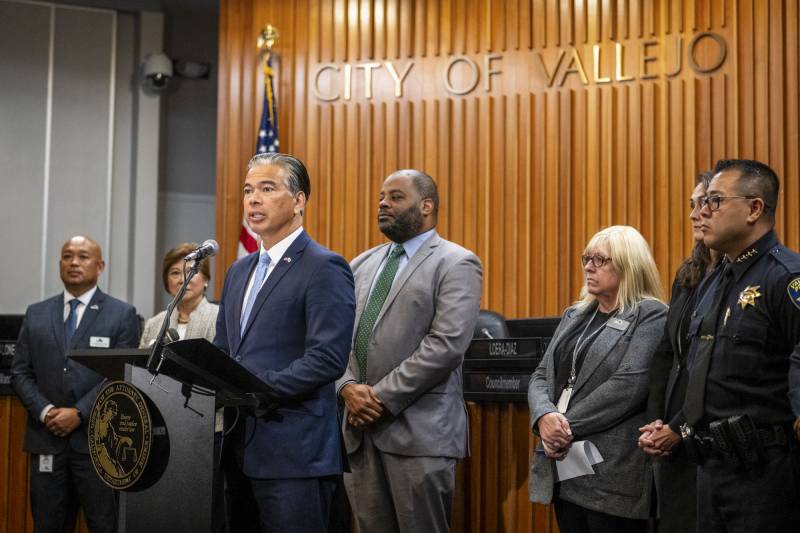The city has also faced criticism for its handling of investigations into numerous other police use-of-force cases, including “inadvertently” destroying records related to five shootings and taking so long to conduct investigations that, in some instances, officers killed other people while still under investigation for prior shootings.
In another high-profile incident, Vallejo police officer Zachary Jacobsen shot and killed Angel Ramos, 21, in his mother’s backyard in 2017, following a fight that broke out during a family gathering there. Responding to calls from neighbors about a disturbance, Jacobsen said he shot Ramos four times after witnessing him “hovering” above another man while making stabbing motions with a kitchen knife, according to the Solano County district attorney’s report on the incident.
But Ramos’ family disputed the police narrative of the shooting, insisting that he did not have a knife and was only punching the man. Ultimately, no knife was found near Ramos’ body. The family filed a wrongful death lawsuit, and last November reached a $2.8 million settlement with the city.
And in February 2019, another Vallejo police killing made national headlines when six officers fired 55 bullets at Willie McCoy, a 20-year-old Black man who had fallen asleep in his car in a Taco Bell parking lot and had just begun to stir as the officers yelled at him to raise his hands.
The following year, reporting from Open Vallejo revealed a years-long tradition among some Vallejo police officers of bending their badges to mark the fatal shootings they had made. Former police captain John Whitney told the media outlet that he was forced out of the department after raising concerns about the badge-bending tradition in the wake of McCoy’s death.
In a statement, civil rights attorney John Burris, who has sued Vallejo’s police department multiple times for its mistreatment of Black residents, commended Bonta and the city for reaching the consent degree. But he also cautioned that rank-and-file officers, and the police union that represents them, would likely stand in the way of any real reform.
“Make no mistake that this is just the beginning; it will take an [unwavering] commitment by city leaders and police leadership to implement the changes,” Burris said. “Change is hard, and the leadership must hold officers accountable; otherwise, the consent decree will not be worth the paper that it is written [on].”

